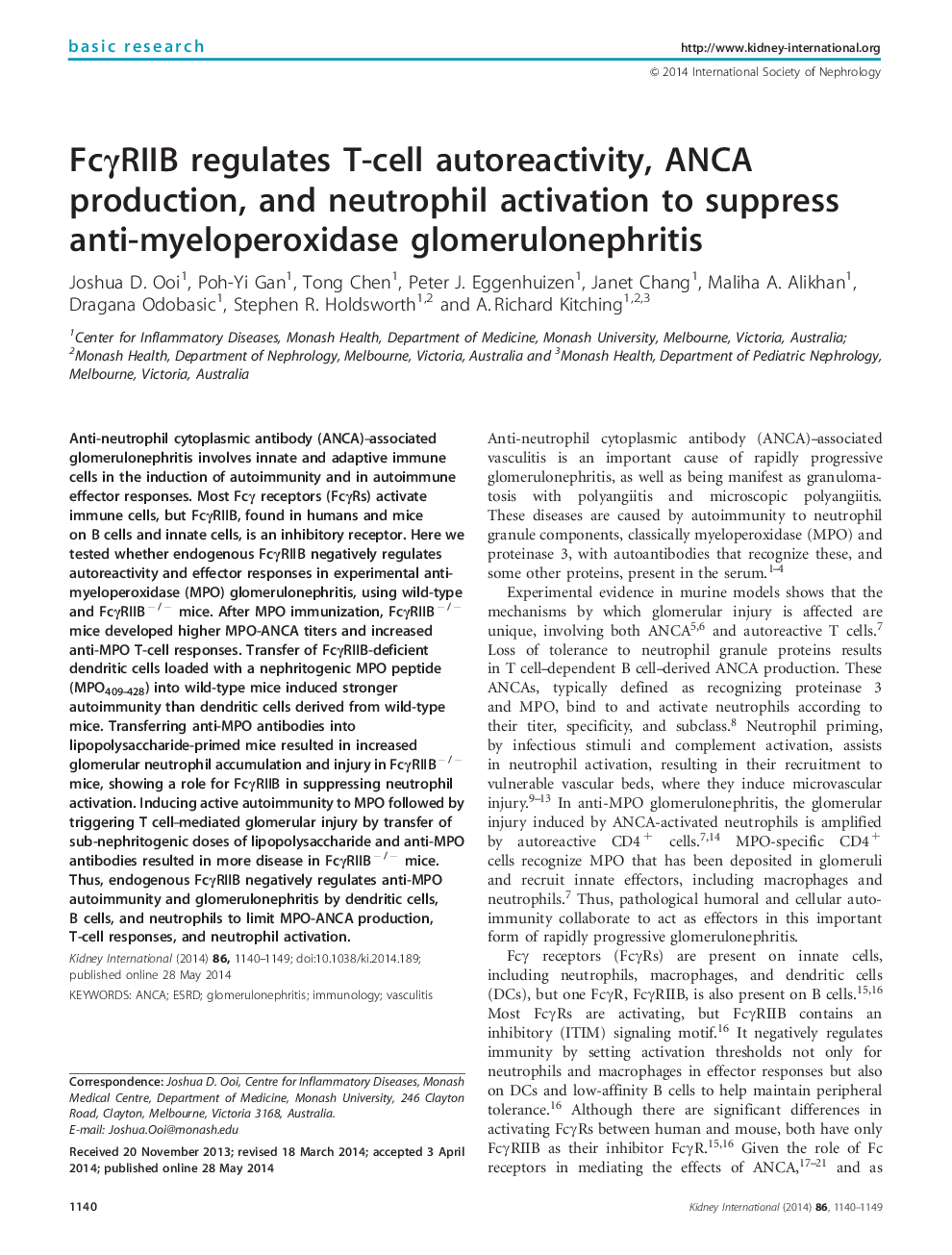| Article ID | Journal | Published Year | Pages | File Type |
|---|---|---|---|---|
| 6163496 | Kidney International | 2014 | 10 Pages |
Abstract
Anti-neutrophil cytoplasmic antibody (ANCA)-associated glomerulonephritis involves innate and adaptive immune cells in the induction of autoimmunity and in autoimmune effector responses. Most Fcγ receptors (FcγRs) activate immune cells, but FcγRIIB, found in humans and mice on B cells and innate cells, is an inhibitory receptor. Here we tested whether endogenous FcγRIIB negatively regulates autoreactivity and effector responses in experimental anti-myeloperoxidase (MPO) glomerulonephritis, using wild-type and FcγRIIBâ/â mice. After MPO immunization, FcγRIIBâ/â mice developed higher MPO-ANCA titers and increased anti-MPO T-cell responses. Transfer of FcγRIIB-deficient dendritic cells loaded with a nephritogenic MPO peptide (MPO409-428) into wild-type mice induced stronger autoimmunity than dendritic cells derived from wild-type mice. Transferring anti-MPO antibodies into lipopolysaccharide-primed mice resulted in increased glomerular neutrophil accumulation and injury in FcγRIIBâ/â mice, showing a role for FcγRIIB in suppressing neutrophil activation. Inducing active autoimmunity to MPO followed by triggering T cell-mediated glomerular injury by transfer of sub-nephritogenic doses of lipopolysaccharide and anti-MPO antibodies resulted in more disease in FcγRIIBâ/â mice. Thus, endogenous FcγRIIB negatively regulates anti-MPO autoimmunity and glomerulonephritis by dendritic cells, B cells, and neutrophils to limit MPO-ANCA production, T-cell responses, and neutrophil activation.
Related Topics
Health Sciences
Medicine and Dentistry
Nephrology
Authors
Joshua D. Ooi, Poh-Yi Gan, Tong Chen, Peter J. Eggenhuizen, Janet Chang, Maliha A. Alikhan, Dragana Odobasic, Stephen R. Holdsworth, A. Richard Kitching,
